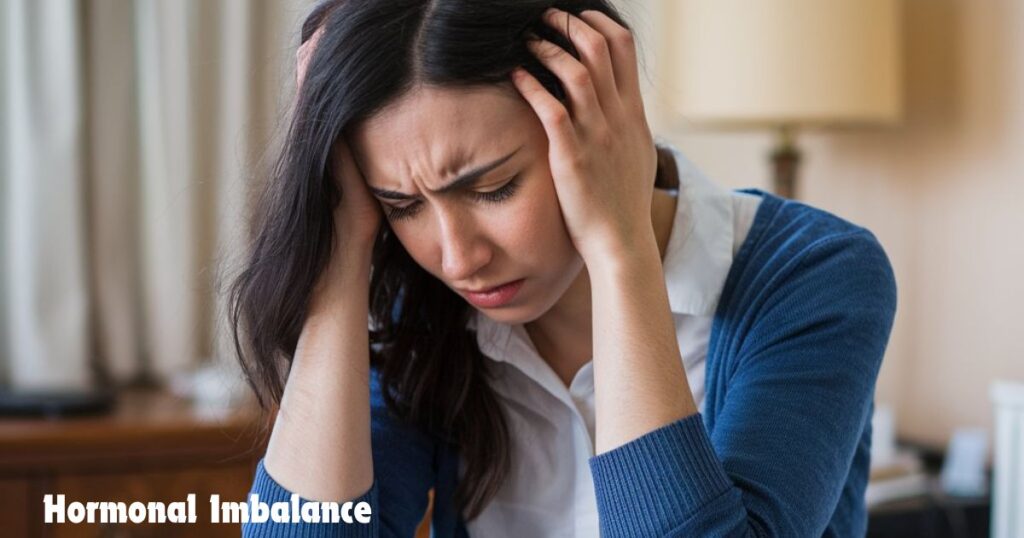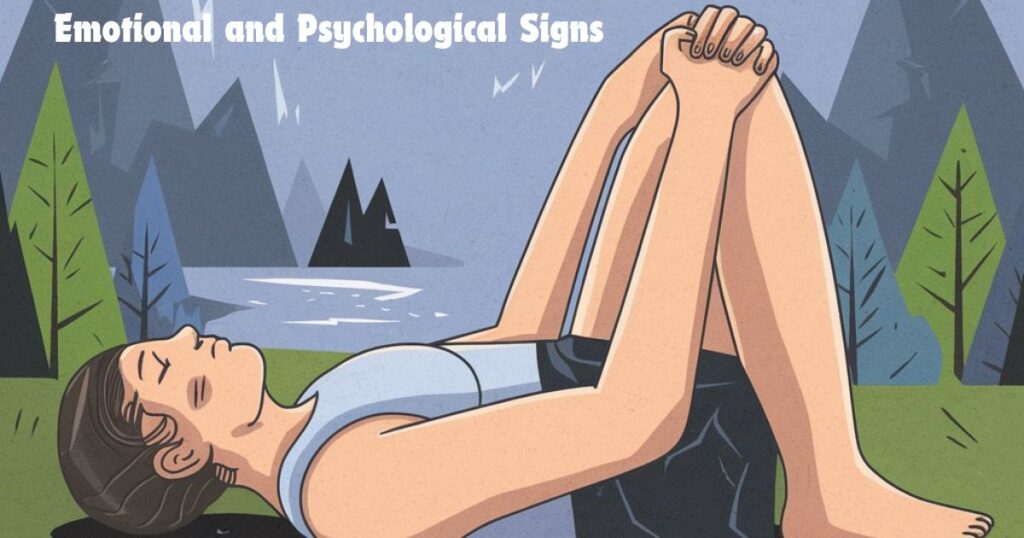In today’s fast-paced world, sexual activity can sometimes take a backseat to other life priorities. For women, prolonged periods without intimate connections can lead to various physical, emotional, and behavioral changes.
This comprehensive guide explores 19 signs that may indicate a woman hasn’t been sexually active for an extended period, and how these signs can affect women in unique ways.
Understanding Sexual Inactivity
Before delving into the signs, it’s crucial to understand what constitutes a “long time” without sexual activity.
This timeframe can vary significantly from person to person, depending on individual needs, circumstances, and preferences. For some, a few weeks might feel like a long time, while for others, it could be months or even years.
There are numerous reasons why a woman might experience a prolonged period without sexual activity:
- Personal choice or celibacy
- Lack of a suitable partner
- Health issues
- Relationship problems
- Stress or busy lifestyle
- Hormonal changes
- Trauma or past negative experiences
It’s essential to recognize that sexual inactivity is not inherently negative. Many women choose to abstain from sexual activity for various reasons, and this choice should be respected.
However, for those who desire sexual intimacy but find themselves in a prolonged period of inactivity, certain signs may manifest.
Physical Signs
1. Hormonal Imbalance

Sexual activity plays a significant role in regulating hormones like estrogen, progesterone, and testosterone.
When a woman hasn’t been sexually active for an extended period, she might experience hormonal imbalances that can lead to various symptoms:
- Irregular menstrual cycles
- Mood swings
- Changes in appetite
- Fatigue
- Decreased bone density
Case Study: Sarah, a 32-year-old woman, noticed her menstrual cycles becoming increasingly irregular after a year without sexual activity.
Upon consulting her doctor, she discovered that her estrogen levels were lower than usual, which was affecting her overall hormonal balance.
2. Lowered Libido
Libido, or sex drive, can be significantly impacted by long periods of sexual inactivity. The old adage “use it or lose it” applies here to some extent.
When the body isn’t regularly engaged in sexual activity, it may reduce the production of hormones that fuel sexual desire.
“Sexual desire is like a muscle. The more you exercise it, the stronger it becomes,” says Dr. Emily Thompson, a renowned sexologist.
3. Physical Discomfort During Sex

After a long period without sexual activity, some women may experience physical discomfort when they resume intimate relations. This discomfort can manifest as:
- Vaginal dryness
- Tightness in the vaginal muscles
- Pain during penetration
These issues often stem from a lack of regular sexual stimulation, which normally helps maintain vaginal elasticity and natural lubrication.
4. Physical Discomfort and Sleep Difficulties
Sexual activity releases endorphins and other relaxing hormones like oxytocin, which can help reduce stress and promote better sleep. Without these natural mood enhancers, some women may experience:
- Increased muscle tension
- Difficulty falling asleep
- Restless sleep patterns
See Also: Aamer Anwar’s Wife Net Worth
Emotional and Psychological Signs

5. Decreased Intimacy in Relationships
Long periods without sexual activity can sometimes lead to a decrease in overall intimacy within a relationship. She might feel less close to her partner or have trouble connecting on an emotional level.
This can lead to feelings of distance or misunderstandings, which can strain the relationship. Not having sex for a long time can also make a woman more self-conscious about her body.
6. Low Self-Esteem
Regular sexual activity can boost self-esteem and body confidence. When this aspect of life is missing, some women may experience:
- Negative self-image
- Decreased confidence in social situations
- Doubts about their attractiveness
It’s important to note that self-esteem should not be solely tied to sexual activity, but for some women, it can be a contributing factor to their overall sense of self-worth.
7. Increased Anxiety and Difficulty Relaxing
Sex can be a natural stress-reliever, thanks to the release of cortisol and endorphins. Without this outlet, some women may find it harder to manage stress and anxiety:
- Increased tension and irritability
- Difficulty unwinding after a long day
- Heightened anxiety in social situations
8. Feeling Insecure in Relationships
For women in relationships, a lack of sexual activity might lead to insecurities about the partnership:
- Doubts about their partner’s attraction to them
- Concerns about the relationship’s stability
- Fear of infidelity or abandonment
Behavioral Signs

9. Increased Clinginess
Some women may display increased emotional dependency when they haven’t been sexually active for a while:
- Seeking constant reassurance from partners or friends
- Needing more attention than usual
- Difficulty spending time alone
10. Avoidance of Sexual Topics
A woman who hasn’t been sexually active for a long time might feel uncomfortable discussing sex or intimacy:
- Changing the subject when sex is mentioned
- Avoiding romantic movies or content
- Discomfort around public displays of affection
11. Decreased Interest in Dating
For single women, a prolonged period without sexual activity might lead to a decreased interest in dating or pursuing romantic relationships:
- Turning down date invitations
- Lack of effort in meeting new potential partners
- Disinterest in using dating apps or websites
12. Increased Focus on Career or Hobbies
Some women might channel their energy into other aspects of life when sexual activity is absent:
- Working longer hours
- Taking on additional projects
- Intensely pursuing hobbies or personal interests
While this can be positive, it’s worth noting if it’s a way of avoiding intimacy or relationships.
13. Passive Behavior in Relationships
Women who haven’t been sexually active for a while might become more passive in their relationships:
- Reluctance to initiate physical contact
- Waiting for their partner to make the first move
- Difficulty expressing desires or needs
14. Changes in Appearance
Some women might make significant changes to their appearance as a way to boost their confidence or attract potential partners:
- Drastic hairstyle changes
- New wardrobe choices
- Increased focus on fitness or diet
15. Hypersensitivity
Nervous to Touch
Physical touch might become an source of anxiety or discomfort:
- Flinching at casual touches
- Avoiding hugs or physical greetings
- Discomfort with massages or other forms of non-sexual touch
Emotional Sensitivity
Heightened emotional reactions may occur:
- Crying more easily at movies or books
- Becoming upset over minor issues
- Mood swings or irritability
Taking Things Personally

An increased tendency to interpret actions or words as personal slights:
- Overanalyzing text messages or emails
- Assuming negative intentions in others’ actions
- Difficulty accepting constructive criticism
16. Increased Social Media Activity
Some women might seek validation online when lacking physical intimacy:
- Posting more selfies than usual
- Seeking likes and comments on social media
- Increased time spent scrolling through dating apps
17. Withdrawal from Social Activities
Conversely, some women might withdraw from social situations:
- Declining invitations to social gatherings
- Spending more time alone at home
- Reduced participation in group activities or hobbies
18. Being Overly Friendly
In some cases, a woman might become overly friendly or flirtatious as a way to seek attention:
- Increased physical contact in social situations
- More animated or exaggerated reactions in conversations
- Seeking to be the center of attention in group settings
19. Overly Pleasing Behavior
Some women might engage in people-pleasing behavior to seek approval and validation:
- Difficulty saying no to requests
- Putting others’ needs before their own consistently
- Agreeing with others’ opinions to avoid conflict
See Also: Ingrid Torelli age
The Varied Impact on Women
It’s crucial to understand that these signs can manifest differently for each woman. Factors such as personal history, cultural background, and individual personality all play a role in how a woman experiences and expresses prolonged periods without sexual activity.
There are no negative health effects from not having sex for a long time, and the best frequency varies from person to person.
However, if a woman is involuntarily abstinent due to a condition like vaginismus or vaginal dryness, she may want to seek medical advice.
Addressing the Signs
If a woman identifies with several of these signs and feels concerned, there are several steps she can take:
- Open communication: Discussing feelings and concerns with a partner or trusted friend can provide emotional support and perspective.
- Self-reflection: Understanding personal needs and desires can help in addressing any underlying issues.
- Professional help: Consulting with a therapist or sexologist can provide guidance and strategies for dealing with emotional or psychological concerns.
- Medical check-up: A visit to a doctor can help address any physical issues or hormonal imbalances.
- Self-care: Engaging in activities that boost self-esteem and overall well-being can be beneficial.
Conclusion
While these 19 signs can indicate that a woman hasn’t been sexually active for an extended period, it’s essential to remember that every woman’s experience is unique. Sexual activity is just one aspect of a fulfilling life, and its importance varies from person to person.
Whether choosing to be sexually active or not, the key is to prioritize overall physical and emotional well-being. By being aware of these potential signs, women can better understand their bodies and emotions, seeking help if needed to maintain a healthy and balanced life.
FAQ’s
What does lack of intimacy do to a woman?
Lack of intimacy can affect a woman’s emotional well-being, self-esteem, and overall relationship satisfaction.
It may lead to feelings of loneliness, decreased self-confidence, and in some cases, physical discomfort during sexual activity when resumed.
How long can a woman stay without making love?
There’s no set timeframe for how long a woman can or should go without sexual activity. It’s a personal choice that varies based on individual needs, circumstances, and preferences.
Some women may be comfortable with long periods of abstinence, while others may desire more frequent sexual activity.
What happens when a woman is sexually deprived in a relationship?
Sexual deprivation in a relationship can lead to feelings of frustration, decreased emotional intimacy, and potential relationship strain.
It may also impact self-esteem and overall satisfaction with the partnership.
How to tell if a woman has been sexually active?
It’s important to note that there’s no definitive way to tell if a woman has been sexually active, and it’s not appropriate to make assumptions or judgments about someone’s sexual activity.
Sexual health and activity are personal matters that should be discussed openly and honestly between partners or with healthcare providers when necessary.

